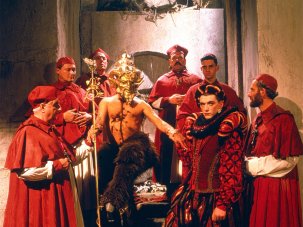“We the generation (Tell me why!)
(Trod through great tribulation) trod through great
tribulation” – Bob Marley, Exodus
The 25th of March 2007 marked the bicentenary of the first Act of Parliament in 1807 that led to the abolition of slavery in the British Empire. The bicentenary received high-level political endorsement from then Prime Minister Tony Blair who said: “I believe the bicentenary offers us a chance not just to say how profoundly shameful the slave trade was – how we condemn its existence utterly and praise those who fought for its abolition – but also to express our deep sorrow that it could ever have happened and rejoice at the better times we live in today.”
Although the Prime Minister has been criticised by some for not giving a full apology for Britain’s involvement in the slave trade, his statement was carefully timed to inaugurate a year of commemorative cultural activities in museums, galleries and cultural institutions across the UK. The commemoration has refocused attention on what actually took place in 1807 and what were the reasons that led a parliament dominated by sugar planters to vote for an end to a trade, which, although it was inhumane, had nevertheless netted countless millions for the British economy.
In some senses 2007 is a great opportunity for revisionist history: to make the abolition appear to be the work of British humanitarians rather than the outcome of slave unrest, the declining price of sugar at the beginning of the 19th century or increased competition (ie cheap sugar) from nations such as France. Some historians argue that the need for the importation of slaves from Africa to the Caribbean was at any rate rendered obsolete by the 1830s because the size of the slave population in the Caribbean allowed plantation owners to ‘breed’ new chattel.
As part of its contribution to both the bicentenary celebrations and the debate, the Mediatheque has curated Exodus: Remembering Slavery – a collection of British television documentaries and dramas dealing with different aspects of the British involvement in the transatlantic slave trade. The increasing regularity of these broadcasts from the 1970s onwards reflects the growing recognition by historians of the part that slavery played in British colonial history.
Although most of the films cover a similar historical timeline – between the eighteenth and nineteenth centuries – they deal with their subject matter in different ways. Some programme makers stress the African involvement in the trade whilst others emphasise the European aspect. Some (Untold: the British Slave Trade) prefer to concentrate on the economic aspects (such as the link between slavery and the start of the industrial revolution) whilst others stress the humanitarian consequences for those enslaved and their present-day ancestors.
Also the process of looking at the abolitionist movement and emancipation is also different. Many of the films show the movement being led by liberals like Granville Sharp and William Wilberforce (The Fight Against Slavery) and others stress the involvement of freed African slaves such as Olaudah Equiano and the pivotal role that the slave revolts in the Caribbean played (A Son of Africa). There is also a different emphasis on the economic reasons for abolition – ie that Britain realised at a certain point that abolition would be economically and politically advantageous, as it would isolate its European competitors in the Caribbean such as the French. However the most glaring difference between the films is the way in which colonialism and imperialism are described in relation to slavery. Most of the documentaries tackle slavery as an isolated mercantile project whose inhumanity is somehow at odds with the principal aims of British capitalism. Only one of the films (The Sugar Slaves) attempts to situate slavery within the trajectory of global colonialism initiated by Britain in the Elizabethan period and reaching its climax in the Victorian era. The Sugar Slaves also makes the link between slavery and the genocide of the indigenous population in the Caribbean such as the Arawaks and their replacement first of all with indentured labour and later on with slaves.
Stylistically there are also differences in the reliance on historical evidence given by academics such as David Dabydeen, Stuart Hall and Robert Beckford, the reliance of dramatisation, or the involvement of economists. Yet some documentaries tell their story through the links with personal histories and narratives and continuing pain and guilt of people whose ancestors were connected with the slave trade in different ways. Overall the collection provides a fascinating insight into how the British media, academic historians – not to mention the African Caribbean community – have attempted to come to terms with one of the most problematic periods in British history.






